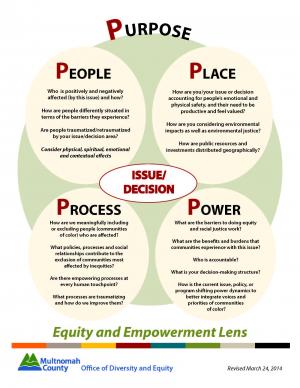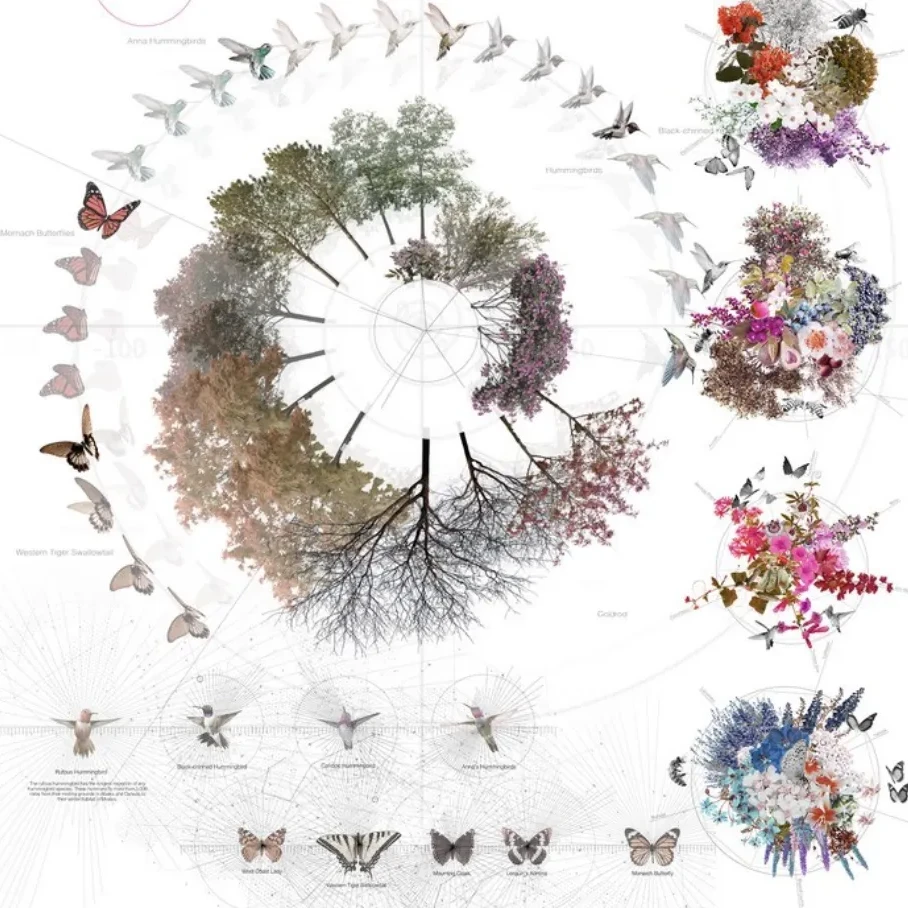
I’m wrapping up some work with a network focused on just and sustainable food systems, and based on work we have done and conversation we have had to date on equity, networks, and love, here is a list of 10 things that might be transferable to your work (remembering that you can’t always transplant directly, without some fine-tuning to context):
-
- If you have an equity commitment, revisit it often, if not during every significant meeting that happens. Integration is key. If you have not developed a commitment, consider it. You might ask your team, “Why are we committed to advancing equitable wellbeing and belonging in and through our work? What does this mean to us? What is in it for us? What happens if we don’t live into this commitment?”
- Go back to your group agreements (assuming you have a set of guiding principles) during every meeting (think about opening with these). Ideally these agreements help you to answer the question, “How can we create conditions for a sense of equitable wellbeing and belonging?”
- Have more discussion with people in your organization/system about Zoom and on-line etiquette. This has to do with supporting equitable wellbeing and belonging and also leaning into collective accountability, which is a big part of “justice infrastructure.” Talk about what you all mean by “accountability” in terms of “showing up” for each other and “speaking up” when together and why it is important.
- Clarify an equitable “system of roles” in your meetings/work (facilitator, scribe/memory keeper, sponsor, lead organizer, point person, etc.). These roles can (and probably should) rotate, and be distributed (not all held by a single or few people). Know what your system of roles is in any given moment, whether you are making meaning, making decisions, or taking action together.
- Schedule equity-focused facilitator training for anyone who facilitates groups in your organization/system. This could be, for example, Facilitative Leadership for Social Change and Fundamentals of Facilitation for Advancing Racial Justice Work, which we offer through IISC. This is about facilitation skills and also meeting design, and also so much more (like tapping into our shared human dignity).
- Create and maintain a broadly accessible list of recommended equity tools for all. Ideally co-create this, revisit it together from time to time, and think of it in terms of different modalities (text, audio, visual, etc.). Keep it fresh and pruned. Here is a great resource to get started.
- Fine-tune the structure of your organization/system so that it reflects your equity commitment, following the notion that “form (structure) follows function (activities) follows focus (what you are trying to make happen in the world).” Revisit structure in light of changing functions and your evolving understanding of equity at least once a year. How is it supporting equitable wellbeing and belonging? How might it be adjusted to be more aligned? Consider using an equity impact assessment to guide you in this work (see image below).
- Keep broadly accessible equity learning and cultural celebration events going, monthly or quarterly. This could be movie nights, discussion groups, guest speakers, book clubs, multi-cultural food potlucks, storytelling festivals, etc. This could also include something like participating in the FSNE 21 Day Equity Challenge. And certainly see if you can attract a diverse flock to these events and celebrations.
- Think about how to do your events in such a way that a wide variety of people feel engaged and included, as participants, contributors, presenters, etc. Consider who has access and feels welcomed and who does not.
- For a bigger stretch, perhaps, consider doing relational organizing or “conversational weaving,” focused on discussing and practicing equitable wellbeing and belonging. You can do this in small groups starting in your organization/community and spread out from there. Resources that might be helpful in this regard include Marshall Ganz’s work and the work of Relational Uprising.

You might also like…
-
- An Ever-Evolving Journey: On Moving to Equitable Wellbeing and Belonging“The project of our society is to constantly re-imagine how we belong together.“ Bridgit Antoinette Evans’ This year, we are again excited to partner with Food Solutions New England on the 21 Day Racial Equity Habit…
- Principles and Questions for Advancing Equitable Wellbeing in Systems“Our drive for wellbeing is universal. Our access to wellbeing is not.” www.wellbeingblueprint.org/blueprint One of my greatest joys is weaving connections between initiatives with which I am partnering. Over the past several months this has shown…
- Network Weaving for Equitable Wellbeing (Part 2)This post is a continuation of the one that appeared earlier this week (Tuesday, November 29th), and together both form an extended article that was written for participants of this month’s Wellbeing Summit, hosted by the…
- Network Weaving for Equitable Wellbeing (Part 1)The following post was written for those who will be attending the Full Frame Initiative’s (FFI) Wellbeing Summit in Charlotte, North Carolina December 11-14. The Interaction Institute for Social Change has been supporting FFI staff and…
About the Author:

Much of Curtis Ogden’s work with IISC entails consulting with multi-stakeholder networks to strengthen and transform food public health, education, and economic development systems at local, state, regional, and national levels. He has worked with networks to launch and evolve through various stages of development.
originally posted at Interaction Institute for Social Change

Network Weaver is dedicated to offering free content to all – in support of equity, justice and transformation for all.
We appreciate your support!
Related Posts
October 20, 2025
Signals from the Web
September 9, 2025



